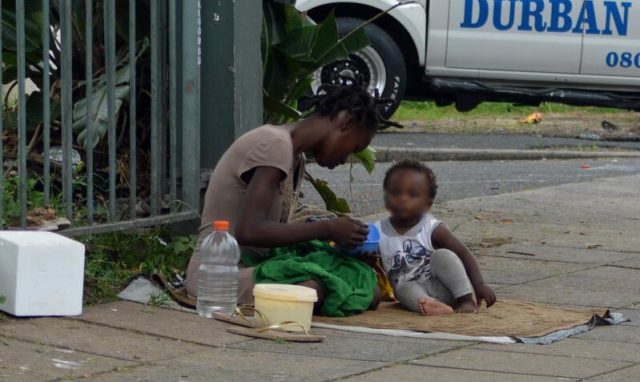As the unemployment rate rockets, youth are the hardest hit with two out of three without a job.
INDUSTRY experts and political analysts warn that South Africa has now been reduced to a nation of “beggars” as the government and private sector are failing in the fight against unemployment.
Asked what plan the government had in fighting unemployment, President Cyril Ramaphosa’s spokesperson, Tyrone Seale, said that the president had previously said that the government was committed to creating programmes aimed at creating job opportunities.
“The central pillar of the government’s programme to grow the economy and create employment is far-reaching measures to unleash the potential of our economy, but focusing particularly on small businesses, micro-businesses and informal businesses,” said Seale.
“This includes reducing the cost of doing business and removing barriers to entry for small businesses. We have abundant talent, energy and creativity, and many entrepreneurs who are ready and willing to start their own businesses.
“Too often, however, these entrepreneurs are frustrated by excessive regulation and a massive burden of compliance.”
Statistics SA (Stats SA) last month revealed the persistent rocketing unemployment crisis, which rose to a record high of 35.3%, placing the country at the top in terms of its unemployment rate.
The Fourth Quarter Labour Force Survey for 2020/21 showed a glaring increase of 0.4% compared with quarter three of the corresponding financial year.
The country’s youth was at the receiving end as youth aged 15-24 years and 25-34 years recorded the highest unemployment rates of 66.5% and 43.5%, respectively.
A total of 278,000 more people were recorded to have fallen into the unemployment bracket following a decrease of 183,000 in the previous quarter.
Of the 10 million young people aged 15-24 under the extended unemployment rate, 32.8% were not in employment, education, or training – a 3.0 percentage point increase over Q4 in 2020.
Independent political analyst Professor Sipho Seepe blamed the current administration for failing to create opportunities aimed at creating employment.
“The government has not only failed the youth but the whole of society. If anything, we are seeing the reversal of all the gains made in the past 15 years. The reversal is not only in the material conditions that Africans find themselves in but also in policy.”
Seepe said the government appeared to be “clueless” and had no clear plan for countering unemployment.
“Instead of coming up with a plan, the government has outsourced the responsibility of development to foreign investment. The country is now reduced to being comprised of beggars. No, the current administration does not even have the capacity to think about how to get us out of the current situation. It confuses public relations with the government.”
Industry expert and economist Professor Bonke Dumisa said: “For a number of years economic conditions have not been conducive to the creation of new jobs for a number of reasons.
“We have a serious jobs mismatch problem where our education systems do not produce people who match the real business needs of the country. This is where most of our youth get affected. Let us change or even completely overhaul our entire education system to start producing people who meet the real needs of business,” said Dumisa.
IFP national spokesperson Mkhuleko Hlengwa said the persisting Covid-19 restrictions had made the unemployment situation worse.
“There are other deeper issues that have also contributed to a reduction in economic growth and, as a result, fewer employment opportunities. Many relate to the country’s ailing infrastructure, with Eskom being one of the biggest culprits.
“The impact of load shedding and the billions lost cannot be downplayed – with some commentators saying load shedding costs South Africa’s economy R500 million per stage, per day.”
Hlengwa said irregular, fruitless, and wasteful expenditure and the hiring of ghost employees by government departments were among the major factors contributing to unemployment.
“We believe in self-help and self-reliance, and equipping people to stand on their own feet. In communities where we govern, the IFP prioritises skills development and training.”
Chair of the DA in KwaZulu-Natal, Dean Macpherson, said government red tape posed a serious threat to employment opportunities.
“The government sees businesses as the enemy of job creation rather than a partner of job creation, and this is evident by the implementation of policies that are anti-growth,” he said.








